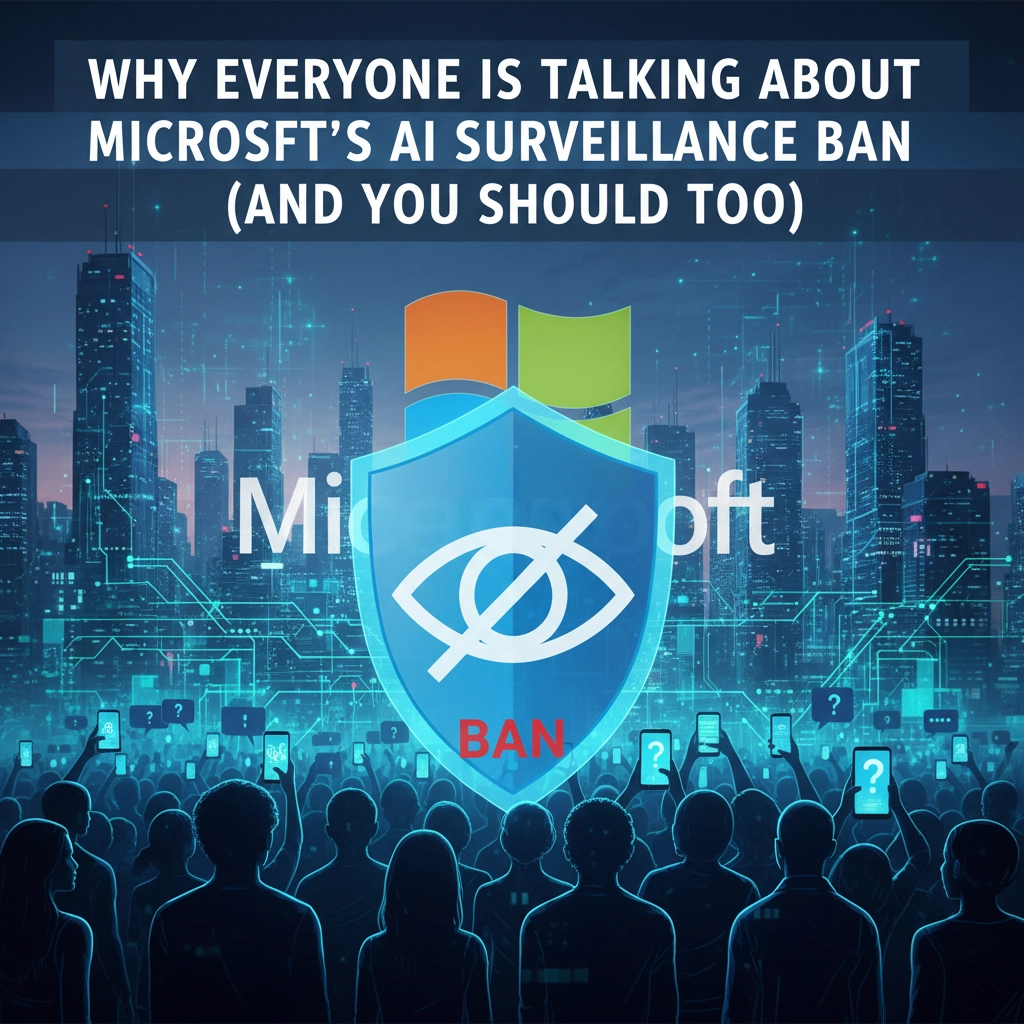Ever wonder what happens when a tech giant suddenly says "nope" to a military contract? Yesterday, Microsoft dropped a bombshell that's got everyone from Reddit to the UN talking.
The company just suspended AI and cloud services to Israeli military units after discovering they were using Microsoft's tech for mass surveillance. And honestly? It's about time someone asked the hard questions about what our everyday apps and services are really being used for.
What Actually Happened
Here's the tea: Microsoft's Azure cloud platform was being used by Israel's Unit 8200 (their spy agency) to store massive amounts of phone call recordings from Palestinians in Gaza and the West Bank. We're talking industrial-scale surveillance here.

The whole thing came to light thanks to an investigation by The Guardian and two other outlets back in August. They found that this military unit was basically using Microsoft's cloud like a giant digital filing cabinet for surveillance data. Microsoft President Brad Smith announced the suspension on Thursday after their internal review confirmed the reports.
But here's where it gets interesting – Microsoft only suspended some services. They didn't cut ties completely. Critics are calling it a half-measure, and they're probably right.
Think about it like this: imagine you found out your landlord was using your apartment building's Wi-Fi to spy on tenants in another building. You'd want them to shut down the whole operation, not just limit access to certain websites, right?
Why This Isn't Just About Microsoft
This story matters way beyond one company's policy change. It's shining a spotlight on something most of us never think about: how the cloud services we use every day can be weaponized.
Your photos on Google Drive, your Netflix streaming, your work files on Dropbox – they're all running on the same type of infrastructure that was being used for surveillance. The difference is who's paying for access and what they're doing with it.
Human rights groups are now demanding investigations into all tech companies' military partnerships. Agnes Callamard from Amnesty International isn't mincing words – she wants comprehensive probes into how cloud computing is being used by military and intelligence agencies worldwide.

Here's what makes this especially wild: most tech companies have been pretty quiet about their government contracts. Microsoft's partial suspension is actually unusual because they admitted there was a problem and took action. Most companies just… don't talk about it.
The Employee Revolt Inside Microsoft
Want to know what really forced Microsoft's hand? Their own employees wouldn't shut up about it.
Microsoft workers have been running a campaign called "No Azure for Apartheid" – and they weren't backing down. In August, the company actually fired four employees who participated in on-site protests about these military ties.

But firing people just made the story bigger. Nothing says "we have something to hide" quite like silencing your own workers, right?
The employees who got fired weren't just random troublemakers. They were pointing out something legitimate: if you're building the infrastructure that enables human rights violations, aren't you partially responsible?
It's like the classic moral question – if you sell someone a baseball bat and they use it to hurt people, are you complicit? The answer gets murkier when we're talking about cloud computing and AI services that can be used for surveillance.
What This Means for You
Okay, so Microsoft suspended some services to a military unit. Why should you care about corporate drama happening thousands of miles away?
Because this precedent could reshape how every tech company handles sensitive partnerships. And that affects the services you use every day.
Here's what could change:
• More transparency about who's using cloud services and for what
• Stricter policies around surveillance-enabling technologies
• Employee activism forcing companies to reconsider military contracts
• Pressure on other tech giants to audit their own partnerships
• New regulations around cloud computing and human rights
The ripple effects are already starting. Other companies are probably scrambling to review their own military contracts right now, wondering if they're next in the spotlight.

Last month, my friend Sarah found out her company's project management software was being used by a government agency she strongly disagreed with. She couldn't do anything about it directly, but she started asking questions about data policies and vendor relationships. Sometimes that's all it takes – people asking uncomfortable questions.
The Microsoft situation shows that employee voices and public pressure can actually create change. It's not just about policy documents and board meetings. Real people making noise can shift how billion-dollar companies operate.
Plus, this sets a precedent. If Microsoft can suspend services based on human rights concerns, what's stopping other companies from doing the same? We might be seeing the beginning of a new era where tech companies are held accountable for how their platforms are used.

The bigger picture here is about power and responsibility. These cloud platforms aren't just neutral tools – they're infrastructure that shapes how information flows and how power operates in the world. When they're used for surveillance, especially targeting civilian populations, it raises questions about corporate responsibility that go way beyond quarterly earnings.
What do you think – should tech companies be responsible for monitoring how their services are used, or is that asking too much from private businesses?







